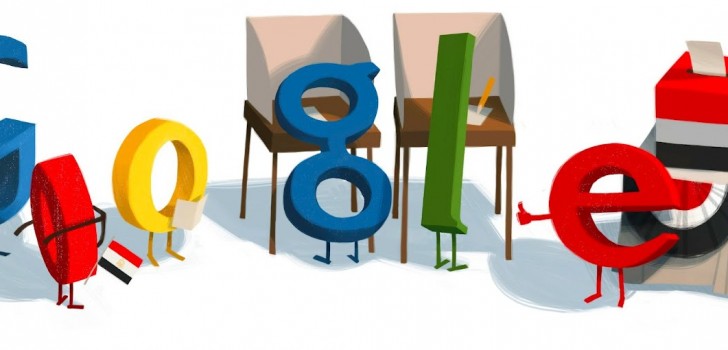America’s next president could be decided based on a manipulated algorithm and rankings on Google’s search engine it has been revealed. Based on research conducted that shows a direct impact of search engine rankings and voter appeal towards a specific candidate, researchers now believe Google could determine the fate of the coming elections and the future of the U.S.
New research done by psychologist Robert Epstein from the American Institute of Behavioral Research and Technology, shows just how much influence is wielded by search engines, particularly with regard to undecided voters in swing states.
In the research, voters were split into three groups, with each group being exposed to a different search ranking for two candidates: A and B. One ranking favored candidate A, the other candidate B and the other neither candidate.
Each group was then allowed to conduct a 15 minute search on the candidates on a search engine similar to Google called Kadoodle. Each group had 30 search results from where they could click freely on real websites from past elections. After the searches, the participants were asked to vote.
The votes cast revealed that the votes, opinions and measures shifted in favor of the candidates with favorable rankings in the search results. The researchers reported that they were able to bolster the results of a candidate by between 37 to 63 per cent just by granting them a favorable ranking.
Granted that Google’s search arithmetic exposes voters to a certain ranking for much longer than 15 minutes, the search engine’s influence is far greater than one could imagine, barely short of handing a candidate a direct pass to their swearing in ceremony.
According to psychologist Epstein, three possible tactics can be deployed by Google to influence the coming 2016 election. One would be the Western Union scenario. Through a monopoly of communications in the 1800s, Western Union was able to ensure only positive news was spread about America’s 19th President Rutherford B. Hayes, effectively granting him an easy win. The same could be applied with Google who have a great relationship with the Democrats.
Six of President Barrack Obama’s top tech administration officials are former Google employees. Google representatives visited the White House reportedly ten times more frequently than other companies and in 2012, Google donated $800,000 towards Obama’s re-election campaign and only $37,000 to Mitt Romney.
An alteration of search rankings in Hillary Clinton’s favor would effectively put her miles ahead of competition. And she knows this, having hired one of Google’s executives, Stephanie Hannon, as her head technology officer.
The second way Google could affect the elections is through a rogue employee manipulating search results in favor of a candidate.
In 2010, when Google was caught sweeping private data from more than 30 countries by unprotected Wi-Fi networks, the blame was put on one employee, engineer Marius Milner. The company was not put at fault and, five years later, their scapegoat still works at Google.
The third way is if the search arithmetic itself favors one candidate over others. Here, Google’s workers are innocent, but their ‘software’ is flawed and biased. The computer program itself will determine our next president and there is no regulation in place to prevent that from happening.
Search engines such as Google owe a duty to the people of the U.S. and in the spirit of democracy to allow free, fair and unbiased elections. This starts with their role in unbiased rankings. Should the company prove otherwise, government regulation should be put in place to correct it, lest the fate of America be decided by a compromised arithmetic.
Stay Connected